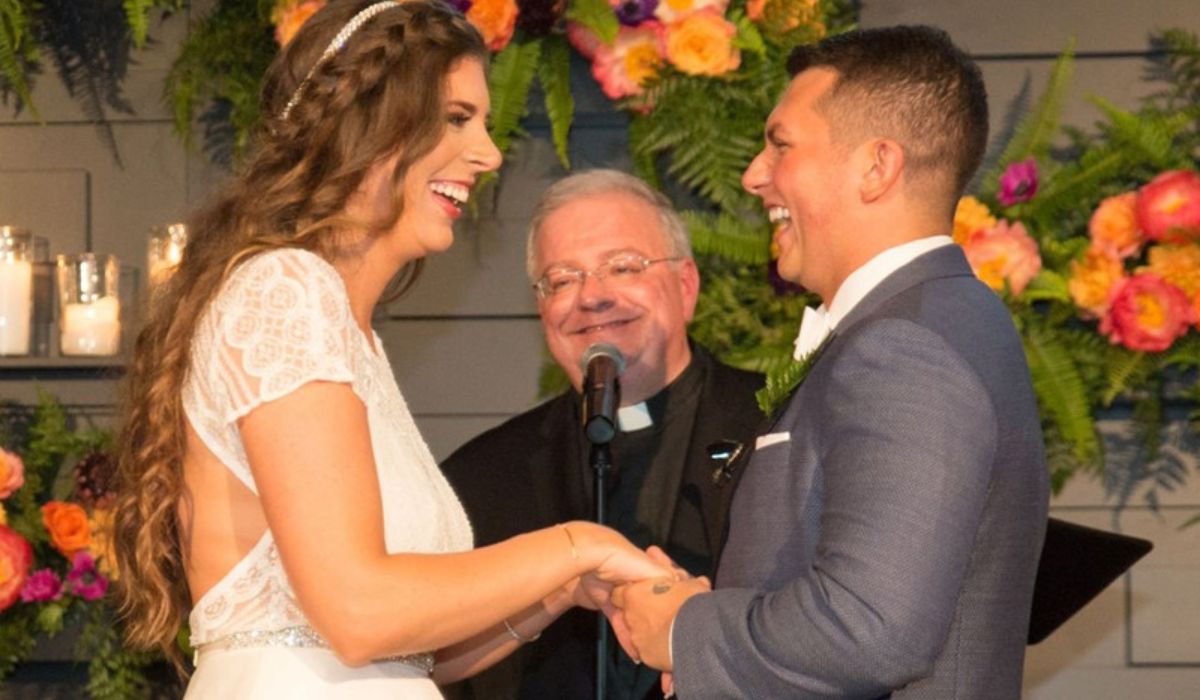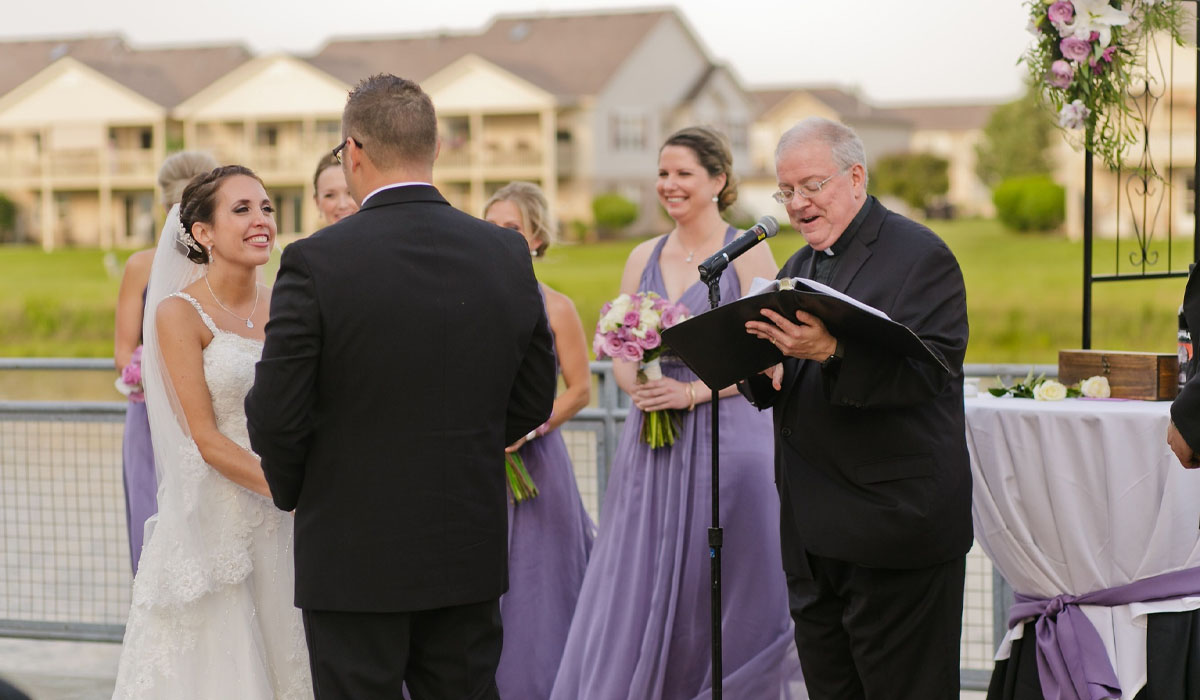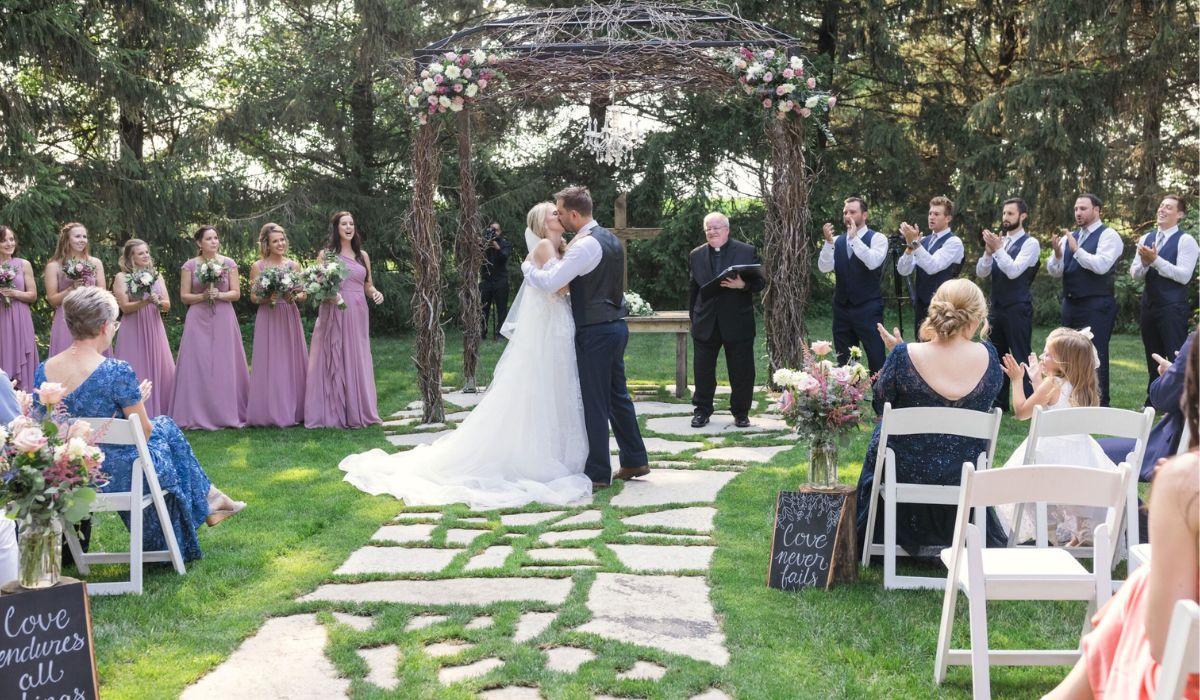
Chicago’s Most Sought-After Wedding Officiant Is Rev. Phil Landers
The Most Sought-After Wedding Officiant In Chicago
You want everything to be perfect on a particular day. Phil Landers is a reverend with a lot of experience caring for people. He can help you ensure your wedding ceremony goes how you want it to. Rev. Phil from “I Do” Weddings can help you plan a day without stress. Don’t wait to call Rev. Phil if you need a marriage officiant!
What Is It That Makes Rev. Phil Landers The Most Sought-After Wedding Officiant?
As a real minister and life coach, Rev. Phil Landers has been in high demand for many years. He can make people feel as if they are being heard and understood by a genuine clergy. People have been looking for this for a very long time.
He helps people who are going through grief, loss, or trauma by working with them. He helps people find their voice and express themselves more fully in life. He tells them things that help them find peace, confidence, and a reason for living.
Rev. Phil Landers has helped people find their way back to God after a tough time. This might be like when someone gets divorced or someone’s loved one dies.
He is the most sought-after Wedding Officiant because he was born for this line of work. He believes that everyone is made in God’s image and can find peace and purpose in Him.

Why Choose Rev. Phil Landers?
Rev. Phil Landers is the perfect choice for your wedding because he’s a man who knows how to make you feel at ease. He will help you make a ceremony that shows your love and who you are. He will make sure everything is perfect. He can also offer suggestions on other parts of your wedding day, like choosing the flowers and music for the ceremony (or reception).
The person in charge of your wedding must have done something similar in the past. This person will know what to do and be able to show you how to do it. Rev. Phil Landers has led ceremonies for a long time, so he knows what makes a good one. He has married 1300 couples!
Rev. Phil Landers is the best choice to officiate a wedding that will make your day special. He is excellent for couples who want a unique and memorable ceremony.
Rev. Phil Offers A Wide Range Of Ceremonies
1. Wedding Vows
This is the heart and soul of your ceremony. This is your vow to each other for the rest of your lives. Give it serious time, thought, and attention.
Rev. Phil strongly encourages you to repeat your vows after him, short phrase by short phrase.
- Trying to memorize them adds stress to a day that has enough of that already.
- If you want to write your vows, you can’t look at your fiancé during the ceremony. You have to hold a card so you can’t see what they are writing. If you cry, it will be hard to read what is on the card.
- If you pick one of the vows below, you repeat a short phrase – “in sickness and in health” – after Rev. Phil. It’s the easiest and least stressful.
If you still want to write your own vows, he will offer guidance and tips.
2. Romantic Readings
Choose what is best for your wedding!
Choose one or two readings from the romantic or religious list. Your family is religious but you’re not so much? Choose a Bible reading that Rev. Phil suggests. Parents and grandparents will love it. Rev.
Rev. Phil says you shouldn’t have more than two. You can choose, but he thinks it will take effort to pick just two.

3. Religious Readings
Here are some readings for your ceremony from the Bible—to honor your family’s faith or your own:
- Colossians, chapter 3, verses 12-14
Another fresh, rarely used reading at weddings is “words on love.”
“Since God chose you to be the holy people he loves, you must clothe yourselves with tender-hearted mercy, kindness, humility, gentleness, and patience.”
“Make allowances for each other’s faults, and forgive anyone who offends you. Remember, the Lord forgave you, so you must forgive others. Above all, clothe yourselves with love, which binds us all together in perfect harmony.”
- Ecclesiastes, chapter 4, verses 9–12
A fresh, rarely used reading at weddings—more words on love.
“Two people are better off than one, for they can help each other succeed. If one person falls, the other can reach out and help. But someone who falls alone is in real trouble. Likewise, two people lying close together can keep each other warm. But how can one be warm alone? A person standing alone can be attacked and defeated, but two people can stand back-to-back and conquer. Three are even better, for a triple-braided cord is not easily broken.”
- Matthew, chapter 19, verses 4-6
God unites married couples; do not split them apart.
“Haven’t you read the Scriptures?” Jesus replied. “They record from the beginning, ‘God made them male and female.’ And he said, “This explains why a man leaves his father and mother and is joined to his wife, and the two are united into one.” Since they are no longer two but one, let no one split apart what God has joined together.
4. Music Sets The Mood And The Tone Of The Ceremony
Be sure the DJ or musicians start playing 30 minutes before the ceremony begins. This will give your guests time to walk in, look at the decorations and flowers, and listen to calming music. If they don’t start playing when they arrive, your guests might wait in the lobby until they do.
There is no right or wrong music to play during the ceremony. You can choose any theme you like. Some couples choose classical music because it is elegant and fits the day. If you’re looking for a wedding officiant, look no further than an officiant near me!
Rev. Phil is a minister who has been doing this work for nearly 20 years. He cares about his clients and wants to help them in any way possible. He will make sure that your ceremony is personalized just for you, and he will make sure that it is meaningful. He is willing to do ceremonies throughout the United States, from Chicago to every other city! Rev. Phil can help you plan your ceremony so that it is exactly how you want it. He will help you choose the right flowers, music, and more. Contact him today!
Wedding Packages We Offer:
Articles We’ve Selected For You:
Frequently Asked Questions
Any Reverend/Pastor, Minister, Priest, Imam, or Rabbi from any church or religious sect: These religious leaders can perform and officiate weddings if they are authorized by their church and have registered with the civil registrar general.
Roman Catholic priests can NOT do a ceremony outside the church – unless the archbishop approves. He won’t. Solution? Have Rev. Phil – who looks like a priest (but is married for 38 years) – officiate. He will do it at the location of your choosing – often where the reception is going to be.
The short answer is yes; you can have a friend or family member perform your wedding ceremony if they have been legally ordained. Fill out an online form from a ministry that will ordain anyone who wishes to officiate weddings to become ordained.
A judge, certain public officials, or a religious official can “officiate,” or perform your ceremony. Within 10 days of your wedding, the person who married you must fill out and send the signed marriage license to the county clerk.
The main distinction between the two is that the wedding officiant has a degree that qualifies him to officiate at a wedding. On the other hand, a minister who has been ordained can be ordained by any church and can take part in church activities other than just weddings.
Reverend and Minister Characteristics:
Reverend: A minister, a pastor, or a bishop may be addressed as Reverend.
Minister: The title “minister” refers to a specific role rather than a style of address. Reverend: Reverend is a prefix for a minister, pastor, or bishop.
Asking a close friend to officiate your wedding has several significant advantages. It adds a more personal touch to the ceremony and is another way for couples to include a loved one who isn’t at the wedding party.
The challenge is that they know the couple but don’t know how to do a wedding. Rev. Phil will spend so much time with you that guests will assume he’s your childhood minister.
The only must-haves or requirements are the formal “I dos” and legal acknowledgment that “yes, I want to marry this person, and yes, I chose to be here,” and the “pronouncement,” in which the officiant confirms that the two are legally married.
